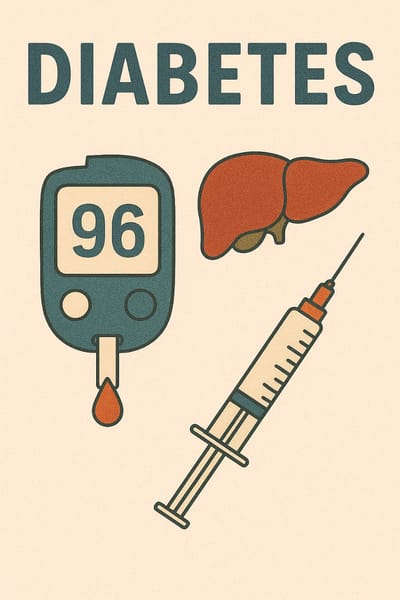Articles
Diabetes mellitus is not a single disease—it is a family of metabolic disorders characterized by high blood sugar due to problems with insulin. It is one of the leading global health concerns, affecting millions of people across all age groups.
Read MoreDiabetes mellitus (DM) is a chronic metabolic disorder characterized by persistent hyperglycemia — an abnormally high level of glucose in the blood. It results either from: • Deficient insulin secretion (the pancreas does not make enough insulin), • Impaired insulin action (cells do not respond properly to insulin), • Or a combination of both.
Read MoreMedicine and health are fields where myths and misconceptions often spread faster than facts. From household remedies passed down through generations to half-truths circulating online, patients frequently come to clinics with firm beliefs that may not be supported by science.
Read MoreInflammation is the body’s natural defense mechanism against injury, infection, or harmful stimuli. However, when inflammation becomes chronic, it can silently damage tissues, contribute to arthritis, heart disease, diabetes, and even cancer.
Read MoreEvery year, as the seasons change, waves of viral infections — particularly seasonal flu — spread rapidly across communities. These illnesses are often underestimated, but they can affect productivity, burden healthcare systems, and in vulnerable individuals, even become life-threatening.
Read MoreThe forties are often called the “silent decade” of health. Most people are settled in career and family, but beneath this apparent stability, subtle physical changes begin. Metabolism slows, hormones start shifting, muscle mass declines, and recovery from stress or illness takes longer.
Read More










